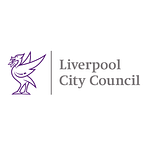Build Back Better
Paul Riley, one of Liverpool City Council’s ‘Green Champions’, reflects upon the year that has passed since the council declared a Climate Change emergency and the changes that people have made, even in the face of a pandemic, and how we can build back better.
“12 months ago, as a member of Liverpool City Council’s new Green Champions team, I sat in the council chamber as the city declared a Climate Emergency. I reflected on all the hard campaigning on a local, national and international level that brought us to this point. It was a huge moment, but in many ways, it was just the start of a journey.
Tackling climate change is a daunting prospect. Contemplating the size of that challenge leads me, again and again, to a difficult question: how can one person change the world? It is a question that every social movement has wrestled with. Measuring your actions against their impact on the other 7.8 billion people on this planet can make any action seem futile.
Is it possible to change things on your own? Consider individuals who have become the faces of their movements. Rosa Parks and Emmeline Pankhurst shook the world, but they had help. They brought about change as part of a community — through collaboration with others.
Community is something we all have in common, and they are where real change begins.
As a member of the global ‘Transition Towns’ movement, I have seen how communities across the world are taking action to improve their quality of life. Something as simple as making the effort to talk to your neighbour can be the best way to start, and the smallest actions can lead to transformative change. It is happening all over our city — here’s just one example:
In spring 2019, a group of residents came together following negative media coverage of their area that had appeared in the local and national press. They started meeting, taking small actions to improve their neighbourhood, gradually building more momentum as they continued to develop. They had community cuppas in their cafes and organised litter picks on their streets. By September 2019 they were able to hold Liverpool’s first Car Free Day which saw 5,000 people come together in celebration. ‘Love Wavertree CIC’ has now taken over a shop on Picton High Street and the transformation of the area is continuing at an amazing speed.
I feel privileged to live in this city. We have a proud history of activism. We’re not afraid of a fight, and I can’t think of a better place from which to campaign for climate justice. Climate action is not just about polar bears. It is about building healthy communities, protecting vulnerable people and raising our voices to fight for a better quality of life.
Our work as Green Champions within LCC is to bring the council together as a community, to ensure that Liverpool acts on its declaration of Climate Emergency. A key part of this is to talk about what climate action looks like on a local level. In Liverpool, we can support our local communities to tackle food and fuel poverty, air pollution, unemployment, crime and antisocial behaviour.
Individuals have small voices, but a choir of thousands is impossible to ignore. We want to support and inspire every LCC employee to be an ambassador for change in their own community, and through building links between the council and voluntary organisations, we can become a city at the forefront of a green revolution. There are already so many amazing projects underway.
In the face of budget cuts and increasing pressures to maintain services, Liverpool City Council is looking to secure a sustainable future for the city through innovation and collaboration. In the next 12 months we will see an incredible transformation in our city, as the council develops new ways of working, strengthens our links with other LAs and with the Liverpool City Region, and forges stronger relationships with community groups and with the residents that are the focus of all of our efforts.
It is impossible to look back over the last year without the spectre of Covid-19 seeming to loom over all. It is important to remember that whilst we cannot control what happens to us, we always have the freedom to choose how we respond. Whilst I understand the wish to go ‘back to normal’, this is not something that we can possibly do. We must build back better.
The Paris Climate Agreement, signed in 2016, set a target of limiting global warming to a maximum of 1.5°C. In order to reach that goal, humanity must cut global emissions in half by 2030. It was said at the time that this will require us to transform our society at a speed and scale unprecedented in human history. That seemed an almost impossible task, but just look at what changes the world has undergone in just the last six months.
We have changed our travel habits, how we spend our money, how we live and how we work. Covid-19 has shown us that rapid change is possible. It has also shown us how strong our city is. Seeing our communities pull together in a time of great need has given me hope that we can face the greater challenge of climate change with the same fortitude and spirit.
Here’s to the next twelve months.
We will build back better.”
Paul Riley works in Liverpool City Council’s Children’s Services, and is a city council ‘Green Champion’. He is also the Network Coordinator for ‘Transition Liverpool’, and project lead of ‘sPark It Liverpool’, an initiative which is supported by the Mayoral Inclusive Growth Fund. If you want to get involved in community initiatives you can contact Paul on twitter at @tt_liverpool, and viawww.transitionliverpool.org.
To find out more about ‘sPark It Liverpool’, you can visit the crowdfunder at www.spacehive.com/sparkitliverpool
